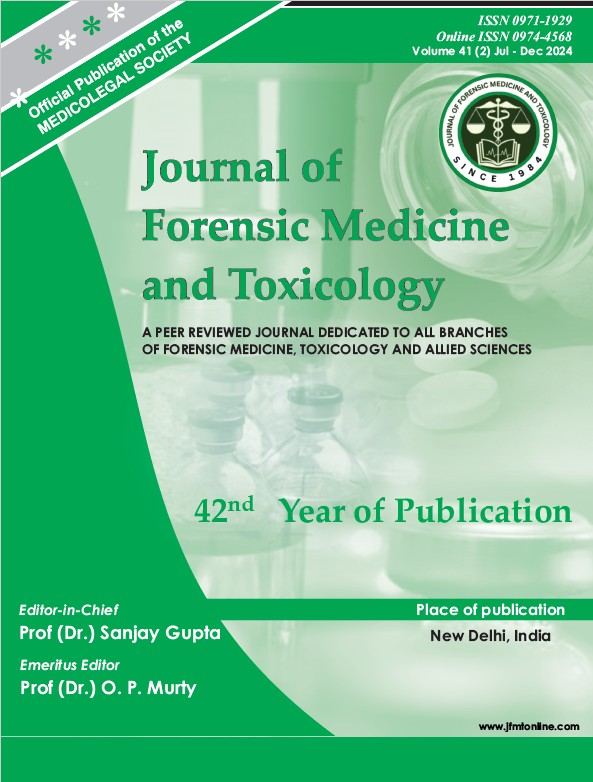END OF LIFE DECISION MAKING: THE INDIAN SCENARIO
Keywords:
End of life decision, DNR, advance life support, euthanasia, advance directives, organ transplantationAbstract
Although death is an everyday occurrence in the critical care units, there is a discomfort in confronting mortality in 21st century society. Advance life support interventions have greatly improved the prospects of treating seriously ill patients, but at the same time futile prolonged life support interventions can make death painful and agonising.
Downloads
References
Papadimos JJ, Maldonado Y, Tripathi RS, Kothari RS, Rosenberg AI, An overview of end of life issues in the intensive care unit. Int. J. Crit. Illness & injury science. 2011, I,(2) 196-107
Mani RK, Amin P, chawler R, et al. Limiting life prolonging interventions and providing palliative care towards the end of life in Indian intensive care units. Ind Soc. Crit Care Med 2005, 9: 96-107
Henig NR, Faul JL, Raffin TA. Biomedical ethics and the withdrawal of advanced life support. Ann. Rev. Med. 2001, 52 : 79-92.
Carey SM, Cosgrove JF. Cultural issues surrounding end of life care. AnaesthCrit care. 2006; 17 : 263-270.
Datta R, Chaturvedi R, Rudra A, Jaideep CN. End of life issues in the intensive care units. Medical Journal Armed Forces India 2013, 69 : 48-53
Ministry of law Justice and company affairs government of India. The transplantation of human organs act 1994 No 42 of 1994 (internet) New Delhi government of India (Cited 2010 Mar. 15) http:india.gov.in/a//impfrmsi all acts 12606 pdf; 1994.
Bardale R. Issues related with non-heart beating organ donation. Indian J.Med.Ethics 2010; 7(2) : 104-106.




